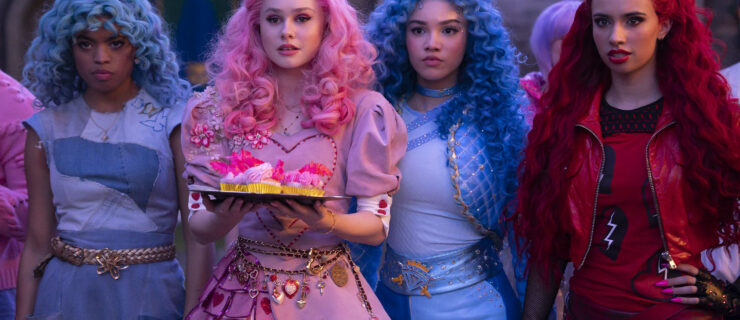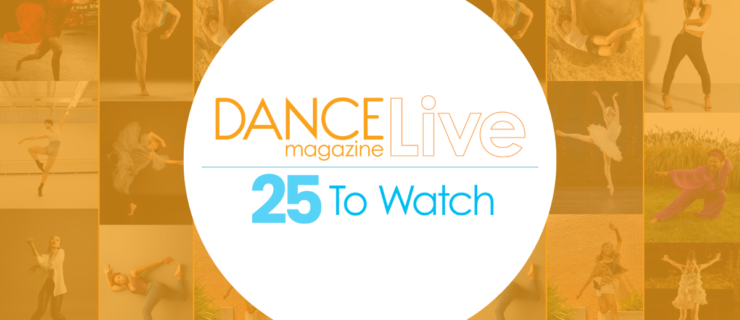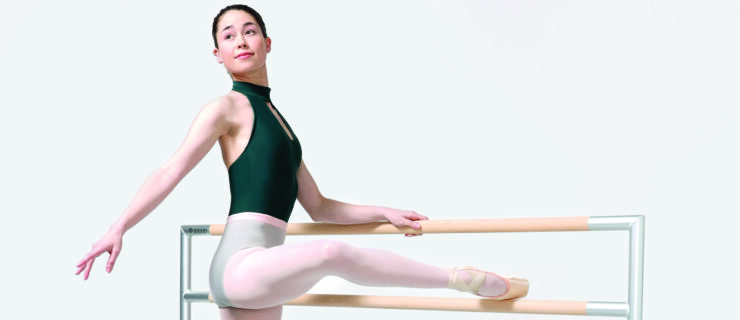Houston Ballet's James Gotesky on his alternate career as a club DJ
James Gotesky, 25, is a dancer by day and DJ by night. As a member of Houston Ballet’s corps, he finds that his double-dipping lifestyle works out remarkably well as long he stays on top of his busy rehearsal days. A sought-after mood mixer on the club scene, Gotesky even won the Houston Press “City of Spin” DJ competition this past summer. How does he balance his two lives? It’s all about being a maverick, and he’s got that covered.
Starting Up:
Gotesky wandered into his DJ career by accident: He and some dancer friends used to frequent a club called Clark’s, where the owner would let them play the music they wanted on slow nights. “I played with the system,” Gotesky says. “I would try to manipulate the energy of the party to see if I could get people to dance, scream or laugh.” After Gotesky had been experimenting for a few months, some local DJs came by and heard him play. They asked him to start doing an official weekly party. “It dawned on me that I was a real DJ when someone asked me what DJ name to put on a flyer,” he says. (Gotesky chose James Reed.)
Training Ground:
While Gotesky honed his dance chops at the Academy of Ballet, San Francisco Ballet School and Boston Ballet School, he developed his considerable DJ skills on the job. When local Houston DJs noticed his natural abilities, they took him under their wing. “It was trial by fire,” remembers Gotesky about his apprenticeship with local mentors. “They knew I needed some basic training but noticed I had an innate sense of timing and strong musicality.” He credits ballet for both skills.
Fave Dance Roles:
Gotesky is known for playing character roles and loves high drama, both on the stage and behind the turntables. Dancing the role of the bloodthirsty Dracula last season proved a high point. “It was quite a challenge,” he says. “I love playing the bad guy; I made him smooth, suave, but also really creepy.” Other breakout roles include Sharpless in Stanton Welch’s Madame Butterfly and dancing in Christopher Bruce’s Sergeant Early’s Dream.
A New Set of Fans:
Gotesky was especially touched when his club chums came out to support his performance as Dracula. “I’m always promoting the ballet with my club friends,” he says.
The Job:
Select, mix and manipulate—that’s basically what a DJ does, but it’s how you mix that matters. “With house music your job is to find music that’s fresh and completely new to audiences. It’s also about the actual mix,” says Gotesky. “I have to predict the mood of the crowd.” Scouting new music on special websites takes up much of his free time. He enjoys the layering process, especially creating loops of cool vocals, and real-time sampling. Adept at warming up the crowd, Gotesky has even done pre-show sets before big acts like Erick Morillo and Paul Oakenfold.
The Gear: Since leaving vinyl behind a year ago and switching to digital, his CDs and headphones are all he needs to play a gig. He borrows a mixer and digital turntables from other DJs.
The Bucks:
Pay for a gig can range from $100 to $500, depending on the length of the set and the DJ’s reputation. Although dancing is still his day job, Gotesky says, “The extra cash comes in handy when I need to fix my car.”
Hours:
A set can be anywhere from one to three hours; Gotesky prefers an hour and half set on Sunday nights. This schedule works best when he’s performing, has Monday off, and a 12:30 pm company class on Tuesday. During hectic rehearsal and performance times, he cuts back on late nights.
The Perks:
“When I’m dancing solo it’s hard to judge the crowd. In a club you know exactly how you’re doing,” he admits. “Plus, I’m still performing; it’s another way for me to be onstage.”
Crossover Potential:
Being a DJ is all about producing a show. “Dance is my first passion and I need hard work, dedication and discipline to do both,” says the DJ/dancer. “I approach my music life very seriously and I’ve learned how to orchestrate an experience and create a dramatic atmosphere.” Gotesky’s careful attention to programming has paid off in the club; he’s convinced that the pressure of being a professional dancer gives him a valuable perspective. “Both are about playing a role and telling a story,” he says. “In the end, it all comes down to making good theater.”



